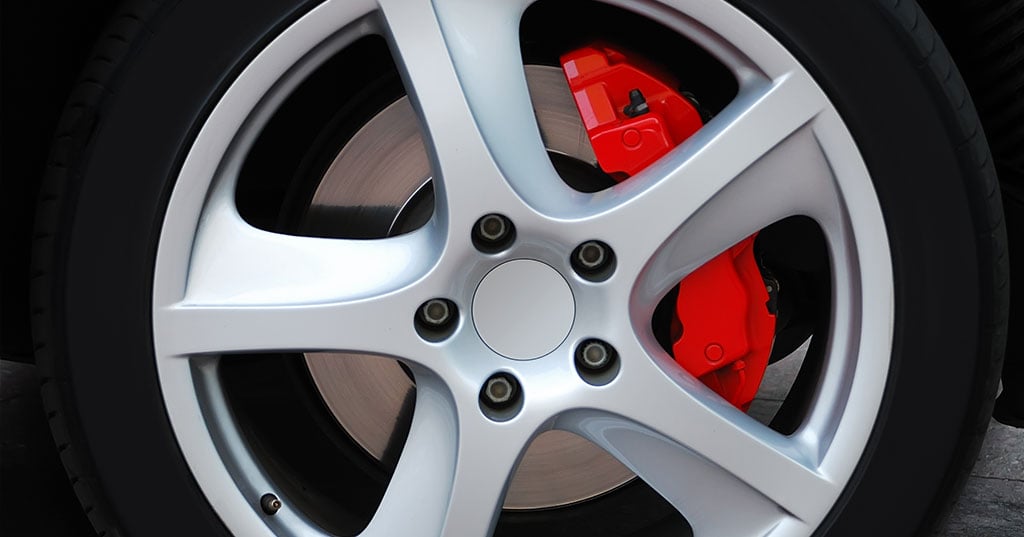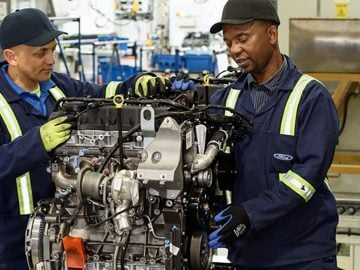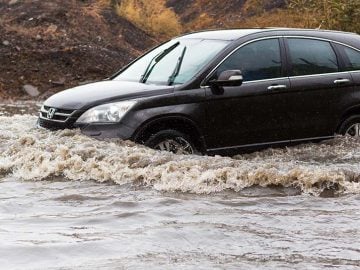
The brakes are the most important active safety part of a car – yet many people do not understand the braking system, or know how to tell if something is wrong with their brakes. It is crucial that brake problems are detected early and fixed, before they put people’s safety at risk.
The basics of brakes
The typical car brake system consists of disc brakes in front, and either disc or drum brakes at the back. The front brakes play a more important role in stopping than the back brakes, because braking throws the car’s weight forward. The brakes are connected to a system of steel tubes and rubber hoses that link at each wheel to the master cylinder.
When the brake pedal is compressed, brake fluid is forced through the tubes and hoses to the braking mechanism on each wheel. For this hydraulic system to work, there cannot be air bubbles in the brake fluid. When the fluid is contaminated with air (via a leak in the system), the brake fluid is “bled” through “bleeder screws” on each wheel cylinder.
Brake maintenance
Brake maintenance is especially important in wet winters, when roads are often slippery and weather conditions make brake systems more vulnerable to problems.
Brake fluid attracts and absorbs water, so it’s important to regularly bleed the brakes – at least once every two years. Have your brakes checked by a professional at least once a year, or more frequently if you tow a trailer, frequently drive in stop-and-go traffic, drive in mountainous or hilly areas or drive off-road.
Common brake problems
By knowing the common warning signs, you can detect brake problems before they become serious. Have your brakes checked by a professional as soon as possible if you experience any of the following:
- The brakes grab at the slightest touch to the pedal
Oil, grease or brake fluid on the brake pads will cause them to slip and grab. The brake pads probably need to be replaced. - The car pulls to one side when you brake
On vehicles with front disc brakes, this is usually caused by a stuck caliper, or a brake fluid leak. Have the system checked. - The brakes screech or squeal
These indicate that your brake pads or brake shoes may need to be replaced. - The brakes make a grinding sound that you can feel in the pedal
Have your car towed – further driving could cause more damage to the brake discs or drums. The grinding is caused by an excessively worn brake pad or brake shoe rubbing against a brake disc or drum. - The car travels too far before coming to a stop
The brake drums are likely worn and need to be replaced. - Your steering wheel shakes when you brake
Your front brake discs need to be machined or replaced. - The pedal goes right to the floor
It’s likely that the brake master cylinder is not holding pressure any longer. - The brake pedal feels spongy
This is usually due to air in the brake system or contamination of the brake fluid. Have the system checked and bled. - The brake pedal fades under pressure
This can be caused by air in the system or low brake fluid, usually due to a leaking master or wheel brake cylinder, or leaking lines. Consult a professional as soon as possible.
Masterparts offers a wide selection of brake parts. These include brake parts from a range of trusted brands, such as FEBI, Metelli and Stone.



